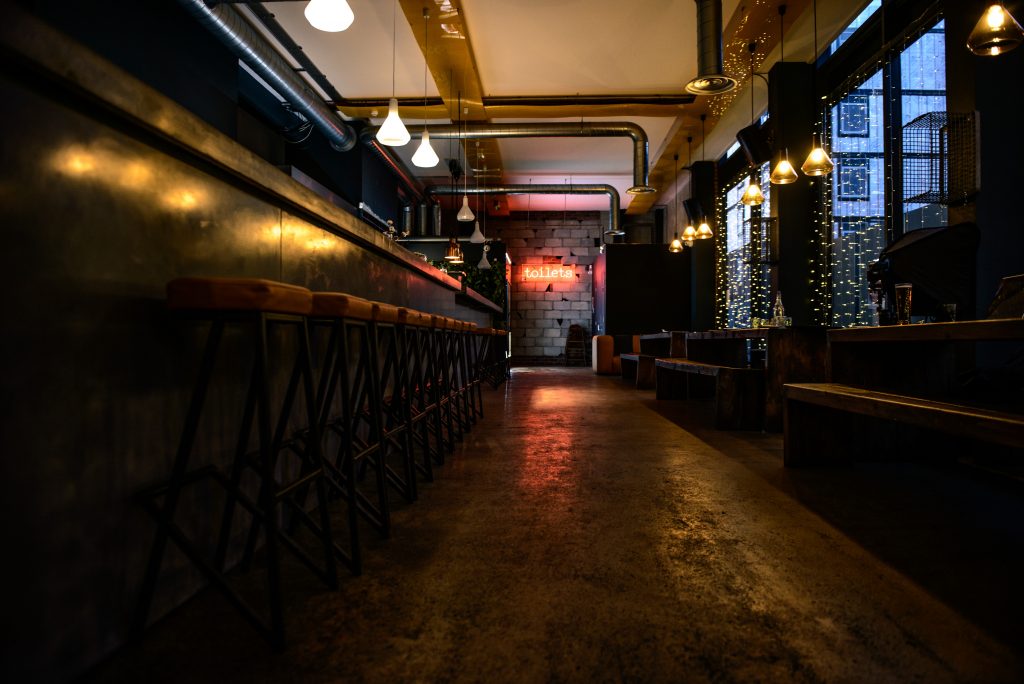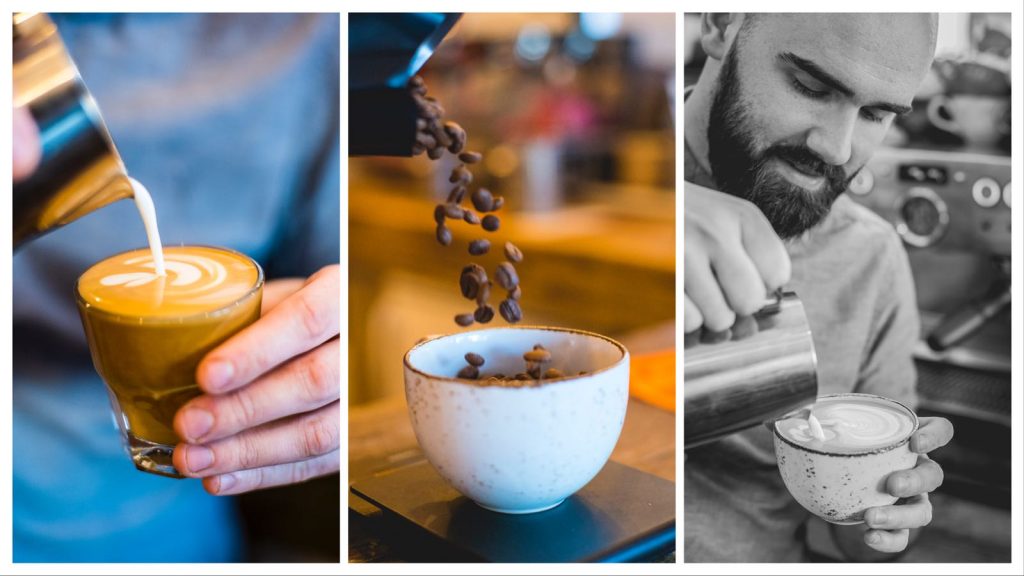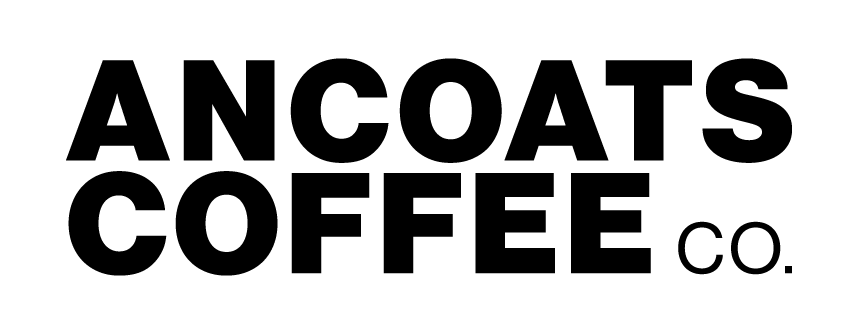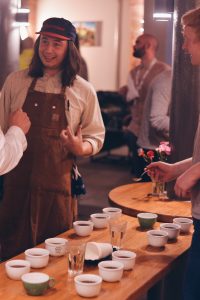Traditionally, restaurants have (mis)treated coffee as a cheap commodity somehow disconnected from the whole dining experience. How many times have we had bad brews served in the end of a really nice meal? The reasons for such a gap in quality are many, but we are happy to say things are finally changing. Ancoats Coffee supplies some amazing bars and restaurants in Manchester and other parts of the UK and we learned how a new generation of chefs and business owners with a different mindset are pushing for Specialty coffee and educating customers.
Beyond an end-of-meal drink
One of the main reasons behind the rise of Specialty coffee in restaurants is demand. More and more people expect to find good coffee when out for a meal and there are enough good cafes around for customers to know when they are getting a “bad brew”. “In the past you might have a cup of coffee after a meal because it was something you grew up with. It was bad coffee, but that was it”, comments Michael Cley, one of the owners and chef at Elnecot – Ancoats Neighbourhood Bar & Kitchen. “Now people have more coffee and at whichever time of the day. That’s a very good reason to serve a decent product.”
Unlike expensive bottles of wine, good coffee is a luxury most people – especially the younger generations – can afford. It goes hand in hand with the ever more popular habit of day time and casual dining. In this context, people tend to drink more coffee without being put off by the price. At the same time, the concern with quality and ethical sourcing has gone mainstream. “Even Tesco sells a ‘Finest’ range of products and people are willing to pay a bit more for it”, says Michael. For Elnecot, quality and ethical sourcing are core values. The restaurant is open from brunch to dinner and only uses locally sourced and inspired ingredients. One of the restaurant’s propositions as a neighbourhood bar and kitchen is that “businesses from the area can help support one another”.

Elnecot works with locally inspired ingredients to create their brunch, lunch and dinner menus (Photo: Jack Kirwin -JK Photography-)
The quality of your coffee reflects on your food
Tom Jones, owner of Liar Liar – a cafe in Oswestry, Shropshire – showcases how you can push for Specialty even outside big cities. He works closely with chef Linda Clark at Fat Rabbit, that specializes in high quality vegan food. “Good coffee is always a good indicator that a place takes all their produce seriously”, Tom says. “Though it takes more than having good coffee to have an impact on people’s perceptions, I think good coffee follows good food and vice-versa.” He stresses the importance of hiring the right staff and investing in training in order to get the best out of the product. “I know restaurants that didn’t do that and ended up having to go back to commodity.”
Investment and return are subjects that can make business owners sceptical about Specialty coffee as it involves buying higher end gear, but for Tom it’s important to see the bigger picture. “From my experience business owners want instant return on investment. It is also unlikely they will feel that they can charge too much extra for the drinks, so they would be unwilling to invest time and money on it. What they fail to see is the importance of improving the customer experience and gaining repeat custom”, he says. Liar Liar has been very successful in that respect. Not only he has been getting positive feedback from customers, he has also upgraded his espresso offering to a more expensive option and managed to make filter drinks more popular. Americanos, for example, are now removed from the menu (we played a big part in this, by the way, encouraging him to serve V60s and batch brew!).
Slowly but surely
As the initial cost can be high, most independent businesses choose to invest slowly. Michael is very clear when he says that as a new business with many needs, having a full-time barista is not at the top of his priority list, but he is making sure Elnecot trains the existing bar staff and hopes to have a dedicated barista at weekend brunches soon. One of the benefits of working with Specialty roasteries is that we offer barista training to new accounts and always help the staff to develop and tweak espresso recipes regularly. After all, it’s not only important for us to work with businesses that share the same values, but it’s in our best interest that these places can showcase our product at its best.

Tom has a background in coffee and crafts his brews carefully. He shares a space with chef Linda and collaborate to create recipes and drinks (Photo: Liar Liar)
Tom trains his staff for up to 4 months on a daily basis and takes recruiting seriously. “Engaging the staff comes down to the individual. People either want to be good at what they do or don’t care, so recruitment is key. As an employer it’s important that I give staff access to gain as much knowledge as possible.” He even got Linda hooked on coffee. “I used to have sugar with my coffee before I worked at Liar Liar and Tom told me to try it without. Now I really enjoy my espressos!”, she tells us. Linda also believes customers respond to quality. “I work really hard on my food and consider myself really lucky to have Tom because we are both coming from a point of excellence and attention to detail. I think the standard of coffee should complement the standard of food.”
Investment, training and customer education: the golden trio
Investment and training are basic needs to serve great coffee, but a third element is important to make the equation work: customer education. As Specialty coffee can taste so different from the widespread commodity brews, staff must be prepared to answer questions about it, just as they would about the food or wine menu. For Tom, “the most important thing is to be approachable and not to force information upon people. When I removed Americanos from the menu that instantly created a conversation because I had taken away the go-to drink. I then had the opportunity to sell something I thought would be a better experience”. He also avoids describing the taste notes of coffees on the menu. “I remember first getting into coffee and being very frustrated at not being able to taste the different notes. I felt I was wasting my money. That’s why we only ever inform flavours verbally and it’s our job to know the audience.”
There is no denying that shifting to Specialty coffee can be a hard task for many restaurants, but the public awareness and increasing demand are making it a profitable business decision. As we see new food joints adhering to the Specialty industry and good cafes opening in Manchester all the time, we hope both customers and business keep pushing for excellence in the future, having in mind the same collaboration spirit shared by both Elnecot, Liar Liar and Fat Rabbit. As Michael puts it: “We don’t want to serve an apologetic coffee at the end of a meal anymore”. I guess we can say that, as a community, what we all want is good produce, provenance and knowing that what we are buying and selling was sourced in a model that is as socially and environmentally sustainable as possible.
Education at Ancoats Coffee Co.
As a Specialty Coffee Roastery we want our customers, our community and our experience of coffee to be as rich and diverse as possible. Our coffee community is strong, passionate and serious, ensuring cup quality from cafe to cafe. We hope – and work hard for it – to grow further into the realms of a Melbourne style city, where good coffee is the rule. We want to build a tight community where local businesses help each other. That’s why we no longer have a minimum order for our wholesale accounts: that way new restaurants like Elnecot can trial how much coffee they’ll need before committing to a big order. With Liar Liar we worked to upgrade their espresso to a higher quality single origin and to add new brewing methods to the menu. If you are a business and you are interested in becoming a customer, please submit an enquiry in our Wholesale page.


Could not agree more with the post. Specialty coffee is an affordable luxury compared to the price of meals. There is no excuse to serve bad coffee, when the country has so many good roasters. It is such a let down when, after an amazing meal, you get below average coffee, made with stale beans. It is good to see, however, that more restaurants in Manchester choose to serve a good coffee.